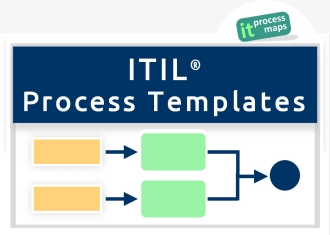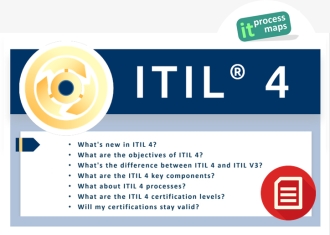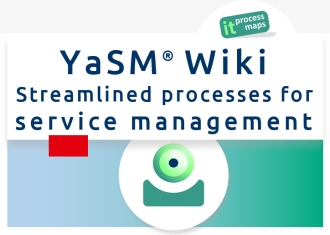IT Service Continuity Management
| diese Seite auf Deutsch |
|---|
ITIL Version: ITIL Version 3 (ITIL V3)
Process Objective: To manage risks that could seriously impact IT services. ITSCM ensures that the IT service provider can always provide minimum agreed Service Levels, by reducing the risk from disaster events to an acceptable level and planning for the recovery of IT services. ITSCM should be designed to support Business Continuity Management.
Part of: Service Design
Process Owner: IT Service Continuity Manager
ITIL V3 vs. ITIL V2: IT Service Continuity Management
- No major differences between ITIL V2 and ITIL V3
Sub-Processes of IT Service Continuity Management (ITIL V3)

- Design Services for Continuity
- Process Objective: To design appropriate and cost-justifiable continuity mechanisms and procedures to meet the agreed business continuity targets. This includes the design of risk reduction measures and recovery plans.
- ITSCM Support
- Process Objective: To make sure that all members of IT staff with responsibilities for fighting disasters are aware of their exact duties, and to make sure that all relevant information is readily available when a disaster occurs.
- ITSCM Training and Testing
- Process Objective: To make sure that all preventive measures and recovery mechanisms for the case of disaster events are subject to regular testing.
- ITSCM Review
- Process Objective: To review if disaster prevention measures are still in line with risk perceptions from the business side, and to verify if continuity measures and procedures are regularly maintained and tested.
Related Key Performance Indicators
Roles within IT Service Continuity Management (ITIL V3)
- IT Service Continuity Manager (Process Owner)






